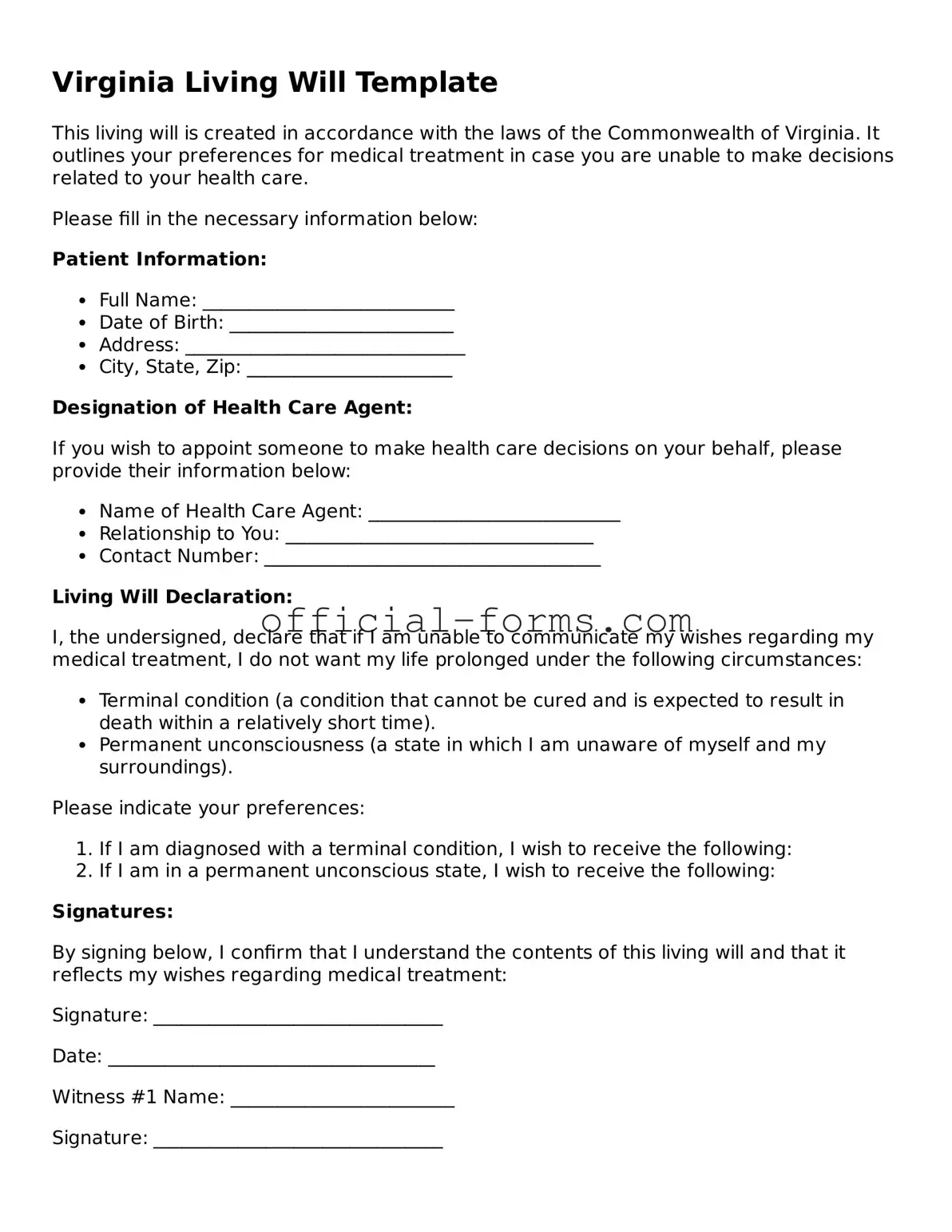Filling out a Virginia Living Will form can be a crucial step in ensuring that one’s healthcare preferences are respected. However, individuals often make mistakes that can lead to confusion or unintended consequences. One common error is not being specific about medical treatments. While the form provides options, failing to clearly indicate preferences can result in healthcare providers making decisions that do not align with the individual's wishes.
Another mistake is neglecting to sign and date the document. A Living Will is not valid unless it is properly executed. Without a signature, the form may be disregarded by medical professionals. Additionally, individuals sometimes overlook the importance of having witnesses. Virginia law requires that the Living Will be signed in the presence of two witnesses, and failing to do so can invalidate the document.
Some people also forget to update their Living Will as circumstances change. Life events, such as a new diagnosis or changes in personal beliefs, may necessitate revisions to the document. Keeping the Living Will current ensures that it reflects the individual's current wishes. Furthermore, individuals may not communicate their wishes to family members or healthcare providers. Without open discussions, loved ones may be uncertain about the individual’s preferences, leading to potential conflicts during critical moments.
Another common oversight involves using outdated forms. Laws and regulations can change, and using an old version of the Living Will may not comply with current legal standards. It is essential to obtain the most recent form to ensure validity. In some cases, people may also fail to consider the implications of their choices. For example, selecting a treatment option without fully understanding its consequences can lead to decisions that may not align with the individual’s values.
Additionally, individuals sometimes neglect to designate a healthcare proxy. While a Living Will outlines treatment preferences, appointing someone to make decisions on one’s behalf can provide clarity and support in complex situations. Moreover, some people may not be aware of the importance of discussing their Living Will with their healthcare providers. Sharing this information with medical professionals can help ensure that everyone is on the same page regarding treatment preferences.
Lastly, individuals may not store the Living Will in an accessible location. If the document cannot be easily found when needed, it may not serve its intended purpose. Keeping copies in multiple locations, such as with family members or healthcare providers, can help ensure that it is available when required. By avoiding these common mistakes, individuals can better prepare themselves and their loved ones for making informed healthcare decisions in the future.

